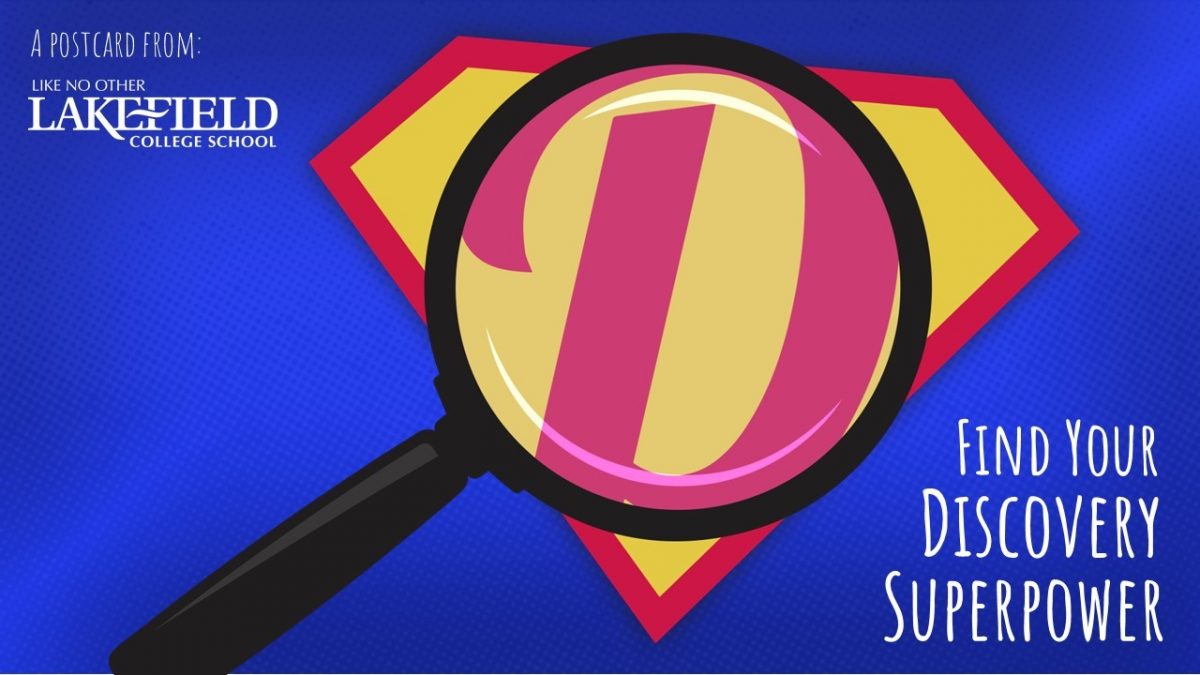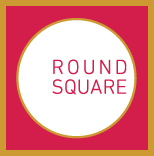A Postcard from Lakefield College School: Find Your Discovery Superpower
Posted: 05 June 2021

Overview:
On the 12th May 2021 Lakefield College School hosted an RS Postcard for 50 participants from 12 schools in Canada, Colombia, Kenya, India, Peru, Oman and Armenia. Students were invited to “Find your Discovery Superpower!” through identifying and sharing which of the twelve Round Square Discoveries are their personal “signature strengths” and which one(s) they would most like to focus on in the future as areas for personal growth.
Participants were asked to identify and share their personal signature strength with the rest of their group. After examining common strengths and “non-strengths”, our student facilitators led a brainstorming session in which participants suggested positive behaviours or actions they could take for personal improvement.
Planning:
Our first task was to select a topic and we wanted something that was relevant and central to our school’s identity and Round Square/Global Learning program philosophy. At LCS, our Global Learning Team had previously identified the need for students to be better prepared for participation international service and adventure trips, student exchanges, Round Square Conferences, etc. as a priority. In response to this need, over the past few years we have designed a Global Learning Curriculum, consisting of a pre-trip orientation/preparation weekend, along with three Pre-Exploration Learning Modules which all students must complete, prior to embarking on one of the above endeavours. Promoting self-awareness and the assessment of each student’s personal skills profile, and encouraging personal growth, are key elements of this program, so the focus of our postcard followed naturally from this.
The opportunity to be involved in planning our postcard was made available to the student members of our Global Learning Committee, as well as past student delegates to Round Square Conferences and those who had previously participated in an RS Exchange. This meant that our team members were already familiar and supportive of the Round Square philosophy and had a demonstrated interest in engaging with other young people from diverse cultures and countries. Allowing the students to choose their roles, and to work in pairs with a partner of their choosing, also helped improve both their motivation and enjoyment.
In the run up to hosting the Postcard we held four planning meetings of about one-hour long each, at which we discussed our topic, students chose a working partner and which role they would like to fill; i.e. one of four presenters or one of twelve breakout room facilitators. At each meeting, we conducted a trial run of the entire postcard session to workout fine-tune the content, wording and timing.
We devised a method called the ‘Three E’s’ to help students chose their signature strength or rather, their “Round Square Discovery Superpower”:
Essential: the strength feels essential to who you are as a person.
Effortless: when you enact the strength you feel natural and effortless.
Energizing: using the strength uplifts you and leaves you feeling happy, in balance and ready to take on more.
Details
Our programme for the Postcard ran as follows:
- Brief overview of Lakefield College School and 3-minute RS video as ab Introduction to Round Square.
- Review of Round Square IDEALS and Discovery Framework.
- Explanation of signature strengths and the “3 E’s” to determine your own signature strengths.
- Introduction of super-hero theme and Ice-breaker activities in six breakout rooms.
- Participants then choose their own personal signature strength from the 12 Round Square Discoveries and share the reasons for their choice with the rest of their breakout group.
- Participants then choose the Discovery they are least-proficient in, but that they would most like to develop in the future. They then shared the reasons for their choice with the rest of their breakout group suggested concrete behaviours or actions that they could implement in their daily lives their daily lives to improve their proficiency with this Discovery.
- After rejoining the main group, the top 3 signature strengths from among all participants were determined, as well as the top 3 non-strengths (i.e. Discoveries identified as areas for personal growth) by the entire group.
- As it relates to the top 3 non-strengths (i.e. areas for personal growth) identified by the group, participants brainstormed tangible behaviours or actions they could take to increase their proficiency with each of these Discoveries.
- As a brainstorming “bonus” question, participants were asked to identify which of the Round Square Discoveries they had demonstrated over the course of today’s postcard activities. They were then invited to share any final thoughts on how they felt the day’s session had gone, what they enjoyed and/or found challenging, what they felt were their main take-aways, etc.
Challenges
Our main challenge was finding times on four occasions when all 14 team members of our planning committee (12 students and 2 staff) could meet for an hour to fine-tune and practice the postcard.
Given the limitations imposed by having to meet entirely by Zoom, I think our approach was effective because the initial concept-planning for the Postcard was limited to only a couple of people and then we brought the students on board to choose and “personalize” their roles, by suggesting changes to the content, language, timing, etc. of the presentation. In this way, the planning process was streamlined, but in the end, I think – or at least hope – that everyone felt they’d contributed to the design of the Postcard and had played an important role in delivering the final product.
In addition, there were a few technological challenges to overcome, such as enabling the breakout group facilitators to operate the slide-show independently, creating jamboards that would work simultaneously within each of the six breakout rooms, and tallying the entire group’s results for the top three strengths and top three non-strengths in a timely manner.
Impact
We found that this was a great way to engage our students in the RS Discovery Framework and to familiarize them with each of the Discoveries.
We think this exercise really encouraged our delegates as well as our own students to be more self-reflective and to be more self-aware and conscious of their super powers, and areas for development. In the concluding discussion many of the participants (both students and adults alike) had said that identifying areas for personal growth was not a practice they engaged with nearly enough in their daily lives. In addition, participants also shared that they had gained a greater awareness and appreciation for the personal challenges faced by their peers from other countries and cultures and helped them to develop a greater appreciation for diversity.
Advice
- choose a topic that allows for interactive engagement and participation, rather than simply presenting information, I would also encourage schools to choose topics that are not too specific; i.e. which are relevant to a wide range of student ages, interests, etc. This way, your session will attract a more diverse field of participants, which is likely to make it more meaningful and memorable for everyone.
- I would suggest allowing ample time for the design and preparation of your postcard activity. For example, our team began meeting two months prior to our scheduled date and found that we needed all of this time to design, practice and refine our presentation.
Author: Gerry Bird and student leaders
